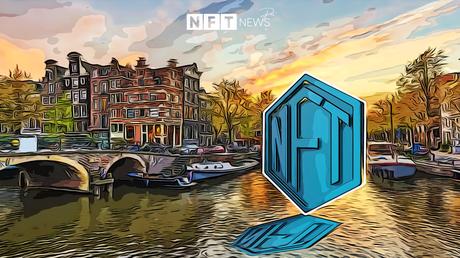
Even though the markets around the world have mixed feelings about non-fungible tokens (NFTs), Europe has set itself up as a place that’s ready to embrace the new blockchain-based technology and become a world leader in developing successful projects that work by distributing non-fungible tokens.
The desire for NTFs may be strongest in Paris, where the NFT Factory, a tech hub that will show off the best of Web3, is being built.
The NFT Factory will open in September 2022. It will have events, art sales, and training programs related to tokens, blockchain technology, and the metaverse.
A group of 50 influential individuals from the tech and cryptocurrency industries, as well as artists, business owners, consultants, and investors, is at the center of the project. The 400 square meter NFT Factory will be a technological, commercial, and artistic hybrid facility in the heart of Paris.
“The NFT Factory is a bit of an oddity,” explained John Karp, co-founder and president of the NFT Factory. “No specialists in this emerging industry have come together to create a project in any other country so far.”
The digital hub has already been working hard to increase NFT adoption in Europe by launching a cutting-edge membership scheme that requires users to buy a non-fungible token to authenticate their access to the project.
France has experience with non-fungible tokens, and in September 2021, Parisian startup Sorare announced a €579.7 million Series B fundraising round to establish the business as one of Europe’s top unicorns specializing in non-fungible tokens.
In order to create a collectible fantasy football game, Sorare uses NFT ownership. Users can purchase the cards of their favorite football players and field them in a five-a-side team to compete for prizes based on how well each player performs in the real world. The business recently entered the Major League Baseball market through a historic agreement.
It’s important to note at this point that France isn’t the only country leading the way toward a future based on NFTs and blockchain technology.Austria is gradually turning into a thriving center for non-fungible collectibles because to comparatively low tax legislation for NFT ownership.
Early in 2022, the world-famous Belvedere Gallery in Austria sold its own NFTs based on the art of Gustav Klimt. The project was seen as a success by critics.
Trying to get through “Crypto Winter”
Even though non-fungible tokens (NFTs) have grown in France, Austria, and other European countries, the non-fungible token market has had trouble building on the momentum it gained in 2021. This is because the market for cryptocurrencies as a whole has been going down this year.
Crypto winter is a long period of flat or falling prices in the cryptocurrency industry. The last “winter” happened between the middle of 2018 and the beginning of 2020.
AltcoinBuzz data shows that the number of NFTs that are traded has dropped by a lot since the middle of 2022. As a result of the global Covid-19 recovery and the war in Ukraine, there have been recessions and cost-of-living crises. This has made investors less likely to trade their tokens now than they were in Q4 2021 and Q1 2022.
Even so, we can see that the market capitalization of the industry is still pretty strong compared to its numbers in 2021. It ranges from $21 billion to $23 billion, which is an increase of almost 1,000% compared to early August 2021.
This shows that despite huge cryptocurrency sell-offs among investors, people are generally happier staying onto their NFTs. The enhanced functionality of NFTs may be to blame for this development. While popular art-based collectibles like Bored Ape Yacht Club and CryptoPunks are used by owners as a status symbol similar to high fashion, platforms like Sorare and Axie Infinity have merged NFTs into games where players are rewarded for owning and using their tokens.
Leave this field empty if you're human: